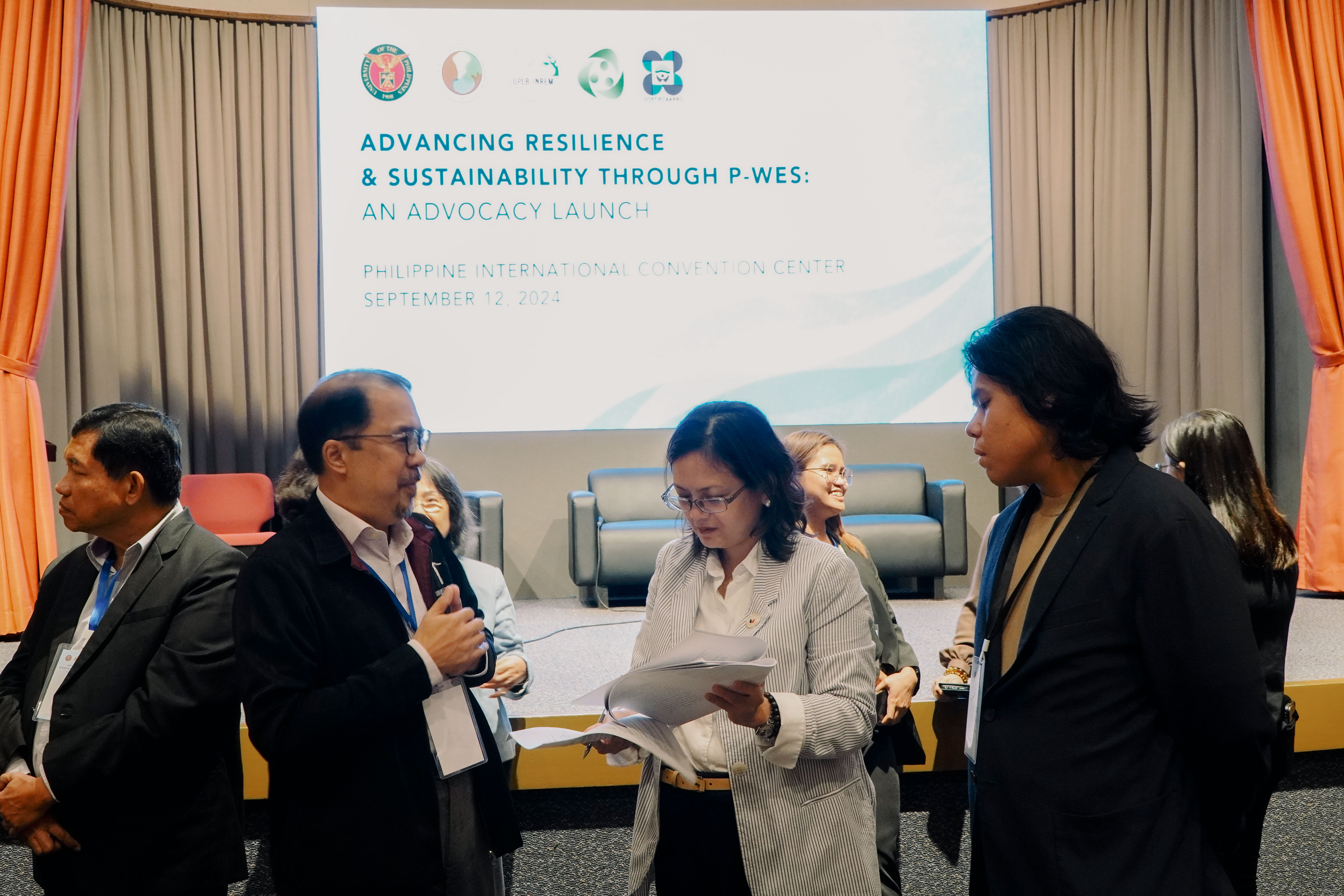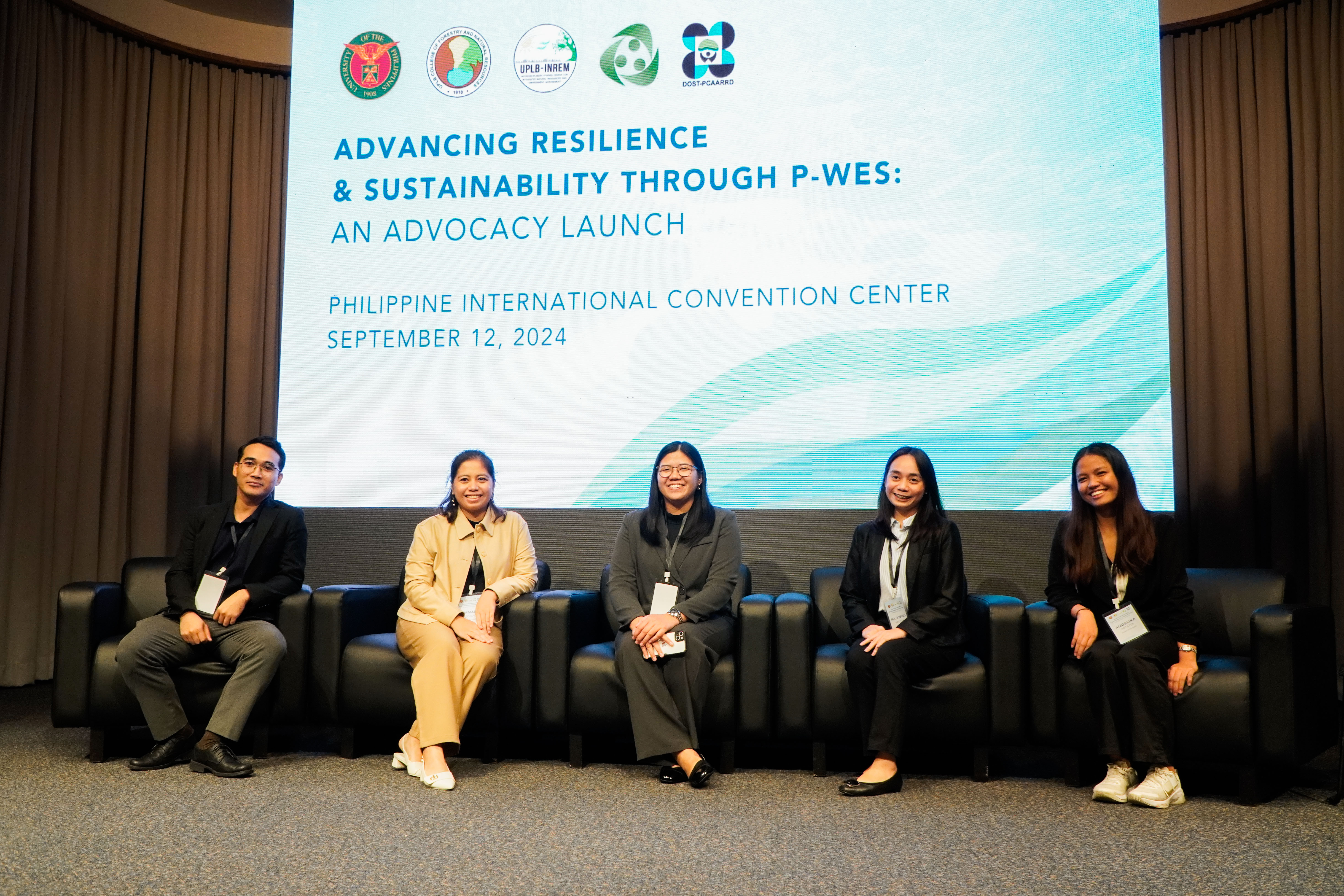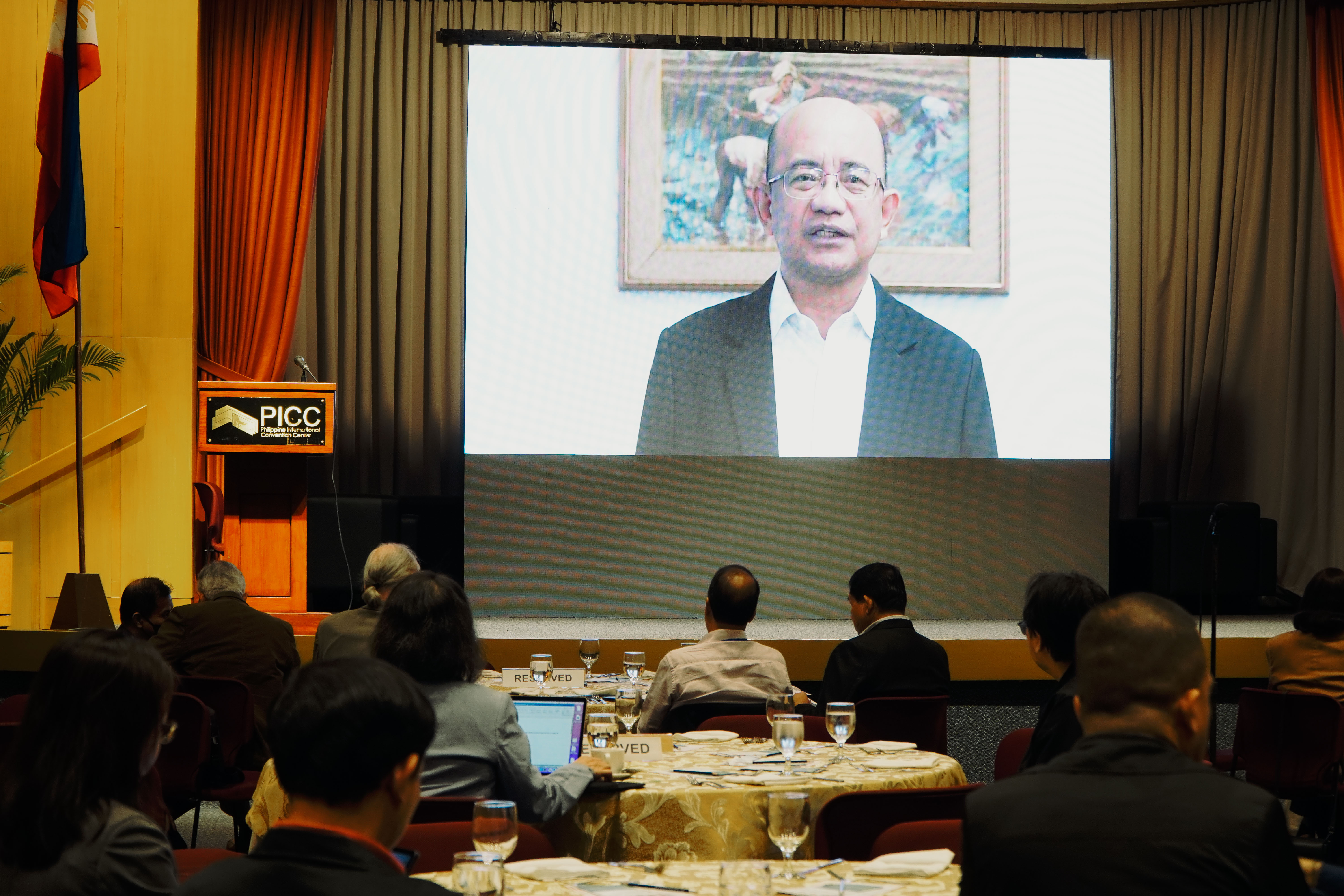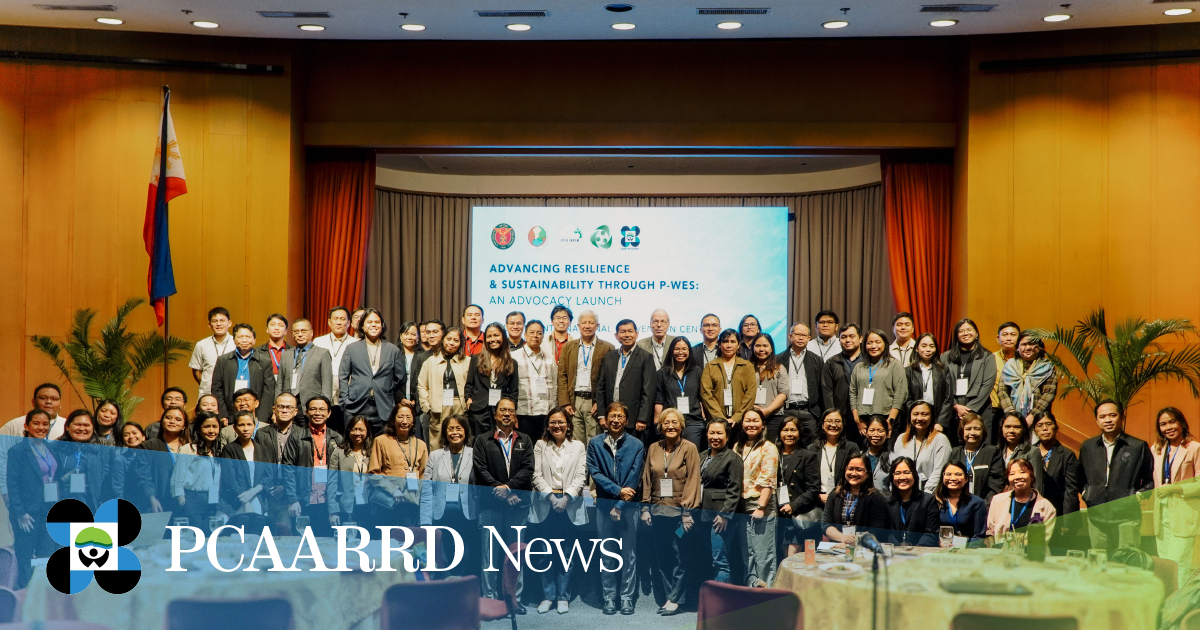The Philippine Council for Agriculture, Aquatic and Natural Resources Research and Development of the Department of Science and Technology (DOST-PCAARRD) and the University of the Philippines Los Baños (UPLB) continue to play a pivotal role in advancing sustainable water management through an advocacy launch themed, “Advancing Resilience and Sustainability through P-WES: An Advocacy Launch.”
Organized by the UPLB Interdisciplinary Studies Center for Integrated Natural Resources and Environment Management (UPLB-INREM) and the University of the Philippines Resilience Institute (UPRI), the event was held on September 12, 2024, at the Philippine International Convention Center (PICC).

Project Leader Dr. Asa Jose Sajie and Cong. Anna Tuazon discusses the significance of P-WES in the country. (Image credit: UPLB)
The advocacy launch is a key activity of the ongoing DOST-PCAARRD-funded project, “Advocating for the Institutionalization of Payment for Water Ecosystem Service (P-WES) in the Philippines,” led by Dr. Asa Jose Sajise of UPLB. The activity aims to engage local and national stakeholders in establishing and institutionalizing a framework to compensate providers of essential water-related ecosystem services. The launch seeks to rally support from key stakeholders by raising awareness about the significance of P-WES in the Philippines and related institutional initiatives.
DOST-PCAARRD Executive Director Reynaldo V. Ebora, opened the advocacy launch, emphasizing the Council’s commitment to supporting initiatives that promote ecological balance and sustainable resource management. UPLB Professor and UPLB-INREM Director Juan M. Pulhin further highlighted that while the Payment for Ecosystem Services (PES) implementation and development entails numerous challenges, it is crucial for raising public awareness, protecting people’s rights to balanced and healthful ecology, and guiding the development and implementation of water resource management mechanisms.

From left to right: Representatives of DOST-PCAARRD during the P-WES Advocacy Launch including Mr. Art John Agapito, Ms. Gemmalyn Trespalacio, Ms. Monica Castillo, Ms. Ma. Roselle Precilla, and Ms. Angelika Artates. (Image credit: UPLB)
The advocacy launch featured presentations from key experts, including Senator Loren Legarda, Dir. Ruben Gamala of UPRI, Dr. Canesio Predo, Dean Marlo Mendoza, Dr. Rosario Tatlonghari and Dr. Asa Jose Sajise of UPLB.
These presentations showcased lessons from previously concluded DOST-PCAARRD-funded projects, such as the “Research for Development: Payment for Ecosystem Services Outcome for Sustainable Water Provision (R4D: PESO SWaP) in Barobbob Watershed, Nueva Vizcaya, Philippines” and “Assessment of payment for water ecosystem services (P-WES) initiatives towards the development of a Philippine PES protocol.”
The presentations covered lectures demonstrating the integration of science and economics to determine potential PWES arrangements, the initial and working draft of the PWES ordinance, the monitoring and evaluation plan, and the comprehensive synthesis of different PWES initiatives.
In the open forum, concerns were raised regarding the integration of climate change adoption as part of the PES, the inclusion of different water dimensions (e.g., water for waste disposal, water for nature and aquaculture), initiatives and innovations to capacitate local government units (LGUs) given the constraints and limited resources, and the development of localized criteria to connect stewards and providers of PES.

Dr. Ebora’s welcoming remarks during the Advocacy Launch at the Philippine International Convention Center (PICC). (Image credit: UPLB)
The launch concluded with a discussion on the draft of the Department Administrative Order (DAO) for developing PES guidelines to finance river basin and watershed management, presented by Dir. Sevillo David, Jr. of DENR-RBCO and a presentation of the drafted national PWES policy and protocol by Atty. Fritzielyn Palmiery.
The drafted DAO provides guidelines for PES water users and actors, incorporating PES provisions into local water supply systems, local ordinances, inter-local government unit cooperation, and capacity-building programs adaptive to the needs of PES actors. It also emphasizes the dissemination of the PES toolkit.
Meanwhile, the drafted national PWES policy focuses on developing the PES toolkit, managing and administering the P-WES fund, establishing exemption or incentive schemes, and fostering collaboration among agencies (e.g., DENR, Department of Interior and Local Government [DILG], Local Water Utilities Administration [LWUA], nongovernmental organizations [NGOs], Civil Society Organizations [CSOs]).
It coordinates with existing management bodies like watershed and river management councils and water quality management boards. The protocol addresses P-WES’ scientific, economic, institutional, and government aspects covering implementation, management, monitoring, evaluation, and the impact assessment of water quality, quantity, regime, and price.
The advocacy launch was attended by various stakeholders from DENR-RBCO; DILG; UPRI; Resources, Environment and Economic Center for Studies, Inc. (REECS); and some representatives from the Congress.

